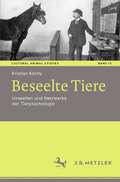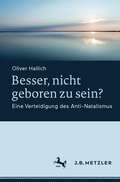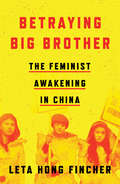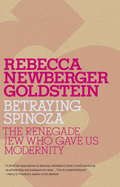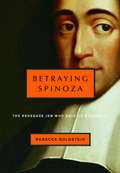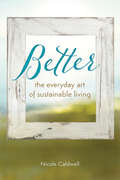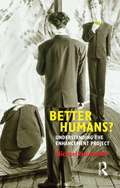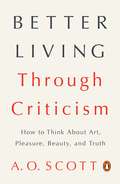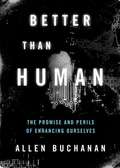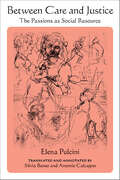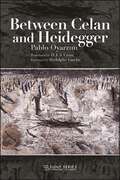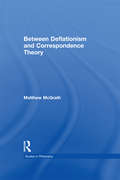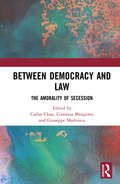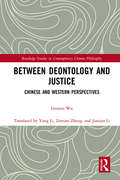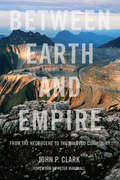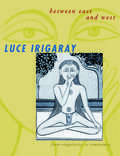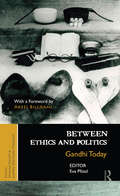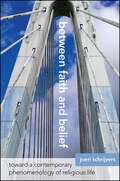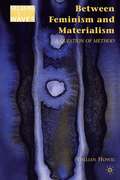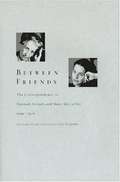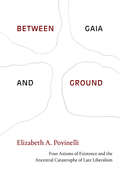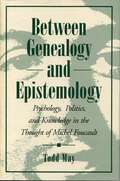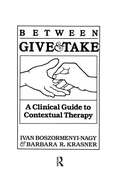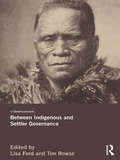- Table View
- List View
Beseelte Tiere: Umwelten und Netzwerke der Tierpsychologie (Cultural Animal Studies #13)
by Kristian KöchyDie Tierpsychologie ist zu Beginn des 20. Jahrhunderts eine prominente Forschungsrichtung zwischen Biologie, Psychologie und Philosophie. Sie fragt nach psychischen Vermögen von Tieren. In essayhaften Studien zu namhaften Protagonisten werden im Buch Forschungskontexte der Tierpsychologie vorgestellt. Die ausgewählten Positionen verstehen menschliche Wahrnehmung ebenso gestalthaft wie die Forschungsgegenstände, die Tiere in ihren Umwelten. Das Buch untersucht Beziehungen von Philosophie und Wissenschaft, skizziert aber zudem eine Philosophie der Tierforschung, die die Interaktion von menschlichen und tierlichen Subjekten anerkennt.
Besser, nicht geboren zu sein?: Eine Verteidigung des Anti-Natalismus
by Oliver HallichIn der zeitgenössischen Reproduktionsethik werden intensiv moralische Probleme von Fortpflanzungstechniken wie Leihmutterschaft oder Gametenspende diskutiert. Erstaunlicherweise wird aber die fundamentale reproduktionsethische Frage, ob wir uns fortpflanzen sollten, kaum thematisiert. Auch Ethiken der Elternschaft erörtern zwar normative Probleme des Eltern-Kind-Verhältnisses und fragen nach der Grundlage parentaler Pflichten, äußern sich aber meist nicht zu der Frage, ob wir Eltern werden sollten. Der Anti-Natalismus, als dessen wichtigster zeitgenössischer Vertreter David Benatar gilt, widmet sich dieser zentralen Frage. Anti-Natalisten plädieren dafür, die Frage, ob wir uns fortpflanzen sollten, mit „Nein“ zu beantworten. In der vorliegenden Abhandlung wird nach der Tragfähigkeit anti-natalistischer Argumente gefragt; es wird zwischen verschiedenen Formen des Anti-Natalismus differenziert und dargelegt, in welcher Form sich ein Anti-Natalismus verteidigen lässt. Es wird deutlich, dass sich zwar keine Pflicht, sich nicht fortzupflanzen, begründen lässt, der Anti-Natalismus sich aber in einer bestimmten Form als kritikresistent erweist und zeigen kann, dass und warum es auch unter günstigen Umständen moralisch problematisch ist, Kinder in die Welt zu setzen.
Betraying Big Brother: The Feminist Awakening in China
by Leta Hong FincherA feminist movement clashing with China’s authoritarian government <P><P>On the eve of International Women’s Day in 2015, the Chinese government arrested five feminist activists and jailed them for thirty-seven days. The Feminist Five became a global cause célèbre, with Hillary Clinton speaking out on their behalf and activists inundating social media with #FreetheFive messages. But the Five are only symbols of a much larger feminist movement of civil rights lawyers, labor activists, performance artists, and online warriors prompting an unprecedented awakening among China’s educated, urban women. In Betraying Big Brother, journalist and scholar Leta Hong Fincher argues that the popular, broad-based movement poses the greatest challenge to China’s authoritarian regime today. <P><P>Through interviews with the Feminist Five and other leading Chinese activists, Hong Fincher illuminates both the difficulties they face and their “joy of betraying Big Brother,” as one of the Feminist Five wrote of the defiance she felt during her detention. Tracing the rise of a new feminist consciousness now finding expression through the #MeToo movement, and describing how the Communist regime has suppressed the history of its own feminist struggles, Betraying Big Brother is a story of how the movement against patriarchy could reconfigure China and the world.
Betraying Spinoza: The Renegade Jew Who Gave Us Modernity
by Rebecca GoldsteinIn 1656, Amsterdam's Jewish community excommunicated Baruch Spinoza, and, at the age of twenty-three, he became the most famous heretic in Judaism. He was already germinating a secularist challenge to religion that would be as radical as it was original. He went on to produce one of the most ambitious systems in the history of Western philosophy, so ahead of its time that scientists today, from string theorists to neurobiologists, count themselves among Spinoza's progeny. In Betraying Spinoza,Rebecca Goldstein sets out to rediscover the flesh-and-blood man often hidden beneath the veneer of rigorous rationality, and to crack the mystery of the breach between the philosopher and his Jewish past. Goldstein argues that the trauma of the Inquisition's persecution of its forced Jewish converts plays itself out in Spinoza's philosophy. The excommunicated Spinoza, no less than his excommunicators, was responding to Europe's first experiment with racial anti-Semitism. Here is a Spinoza both hauntingly emblematic and deeply human, both heretic and hero--a surprisingly contemporary figure ripe for our own uncertain age.
Betraying Spinoza: The Renegade Jew Who Gave Us Modernity
by Rebecca GoldsteinIn 1656, Amsterdam's Jewish community excommunicated Baruch Spinoza, and, at the age of twenty-three, he became the most famous heretic in Judaism. He was already germinating a secularist challenge to religion that would be as radical as it was original. He went on to produce one of the most ambitious systems in the history of Western philosophy, so ahead of its time that scientists today, from string theorists to neurobiologists, count themselves among Spinoza's progeny. In Betraying Spinoza, Rebecca Goldstein sets out to rediscover the flesh-and-blood man often hidden beneath the veneer of rigorous rationality, and to crack the mystery of the breach between the philosopher and his Jewish past. Goldstein argues that the trauma of the Inquisition's persecution of its forced Jewish converts plays itself out in Spinoza's philosophy. The excommunicated Spinoza, no less than his excommunicators, was responding to Europe's first experiment with racial anti-Semitism. Here is a Spinoza both hauntingly emblematic and deeply human, both heretic and hero--a surprisingly contemporary figure ripe for our own uncertain age.
Better
by Nicole CaldwellIntellectual arguments alone will not sway the dominant paradigm; to be motivated to create change, people must be moved. Art has the power to inform, influence, and inspire. The creative impulse can, quite literally, change the world.Better explores the intersection of sustainability and art, showing how each of us can reinvent our lives as our greatest artistic achievement. Presented in the context of the unique story of Better Farm, a blueprint for environmentally conscious living originally established as an intentional community, this unusual guide blends theory with practical, hands-on, DIY ideas to incite your own creative adventures, including: Upcycling trash into treasure Turning your fish tank into a garden Making your yard or balcony a work of artBetter is a concrete application of the Better Theory, which views every experience--good or bad--as an opportunity for exponential personal growth. Packed with life lessons and tips for making any lifestyle more sustainable, while drawing on everyone's inherent creativity, this unique book provides the inspiration to live more simply, take more chances, and engage more with the natural world. A must-read for anyone who questions the purpose of the daily grind or grapples with the need for more meaning in his or her life.Nicole Caldwell is the co-founder of Better Farm, a sixty-five-acre sustainability campus, organic farm, and artists' colony serving as a blueprint for environmentally conscious living. Her writings have been featured in Mother Earth News, Reader's Digest, and Time Out New York, among others.
Better Humans?: Understanding the Enhancement Project
by Michael HauskellerDevelopments in medical science have afforded us the opportunity to improve and enhance the human species in ways unthinkable to previous generations. Whether it's making changes to mitochondrial DNA in a human egg, being prescribed Prozac, or having a facelift, our desire to live longer, feel better and look good has presented philosophers, medical practitioners and policy-makers with considerable ethical challenges. But what exactly constitutes human improvement? What do we mean when we talk of making "better" humans? In this book Michael Hauskeller explores these questions and the ideas of human good that underpin them. Posing some challenging questions about the nature of human enhancement, he interrogates the logic behind its processes and examines the justifications behind its criteria. Questioning common assumptions about what constitutes human improvement, Hauskeller asks whether the criteria proposed by its advocates are convincing. The book draws on recent research as well as popular representations of human enhancement from advertising to the internet, and provides a non-technical and accessible survey of the issues for readers and students interested in the ethics and politics of human enhancement.
Better Living Through Criticism
by A. O. ScottThe New York Times film critic shows why we need criticism now more than everFew could explain, let alone seek out, a career in criticism. Yet what A.O. Scott shows in Better Living Through Criticism is that we are, in fact, all critics: because critical thinking informs almost every aspect of artistic creation, of civil action, of interpersonal life. With penetrating insight and warm humor, Scott shows that while individual critics--himself included--can make mistakes and find flaws where they shouldn't, criticism as a discipline is one of the noblest, most creative, and urgent activities of modern existence.Using his own film criticism as a starting point--everything from his infamous dismissal of the international blockbuster The Avengers to his intense affection for Pixar's animinated Ratatouille--Scott expands outward, easily guiding readers through the complexities of Rilke and Shelley, the origins of Chuck Berry and the Rolling Stones, the power of Marina Abramovich and 'Ode on a Grecian Urn.' Drawing on the long tradition of criticism from Aristotle to Susan Sontag, Scott shows that real criticism was and always will be the breath of fresh air that allows true creativity to thrive. "The time for criticism is always now," Scott explains, "because the imperative to think clearly, to insist on the necessary balance of reason and passion, never goes away."From the Hardcover edition.
Better Than Human: The Promise and Perils of Enhancing Ourselves
by Allen BuchananIS IT RIGHT TO USE BIOMEDICAL TECHNOLOGIES TO MAKE US BETTER THAN WELL OR EVEN PERHAPS BETTER THAN HUMAN? Should we view our biology as fixed or should we try to improve on it? College students are already taking cognitive enhancement drugs. The U.S. Army is already working to develop drugs and technologies to produce "super soldiers." Scientists already know how to use genetic engineering techniques to enhance the strength and memories of mice, and the application of such technologies to humans is on the horizon. In Better Than Human, philosopher-bioethicist Allen Buchanan grapples with the ethical dilemmas of the biomedical enhancement revolution. Biomedical enhancements can make us smarter, have better memories, be stronger, quicker, have more stamina, live much longer, avoid the frailties of aging, and enjoy richer emotional lives. In spite of the benefits that biomedical enhancements may bring, many people instinctively reject them. Some worry that we will lose something important--our appreciation for what we have or what makes human beings distinctively valuable. Others assume that biomedical enhancements will only be available to the rich, with the result that social inequalities will worsen. Buchanan shows that the debate over enhancement has been distorted by false assumptions and misleading rhetoric. To think clearly about enhancement, we have to acknowledge that human nature is a mixed bag and that our species has many "design flaws." We should be open to the possibility of becoming better than human, while never underestimating the risk that our attempts to improve may backfire.
Between Care and Justice: The Passions as Social Resource (SUNY series in Contemporary Italian Philosophy)
by Elena PulciniElena Pulcini (1950–2021), an internationally renowned philosopher of care, was at the forefront of thinking and creating a new ethical framework to respond efficaciously to problems that affect individuals at a global level. This translation of Pulcini's last work addresses perhaps the two fundamental questions for our times—namely, "Why care for others when we are not bound by personal relationships?" and "Why commit to justice even when it does not personally affect us?" By focusing on passions such as indignation, fear, compassion, resentment, and love, Pulcini offers an alternative ethical perspective in which justice and care intertwine to supplement and balance each other. Together, care and justice are proven capable of addressing the challenge of the "other," distant in space (the outsider, the marginalized, and the migrant) and time (future generations). In the end, Pulcini proposes a form of moral education that nurtures and develops desirable moral sentiments for a more just world at the interpersonal, social, political, economic, and environmental levels, thereby providing an alternative social, global model to current individual-focused, rights-based, purely rationalist ethical systems.
Between Celan and Heidegger (SUNY series, Literature . . . in Theory)
by Pablo OyarzunThe relevance of Martin Heidegger’s thinking to Paul Celan’s poetry is well known. Between Celan and Heidegger proposes that, while the relation between them is undeniable, it is also marked by irreducible discord. Pablo Oyarzun begins with a deconstruction of Celan’s Todtnauberg, written after the poet visited Heidegger in his Schwarzwald cabin. The poem stands as a milestone, not only in the complex relationship between the two men but also in the state of poetry and philosophy in late modernity, in the aftermath of the Holocaust. Discussion then turns to The Meridian, Celan’s acceptance speech for the prestigious Büchner Prize for German language literature. Other issues are insistently addressed—place, art, language, pain, existence, and the Heideggerian notion of dialogue—as Oyarzun revisits several essential poems from Celan’s oeuvre. A rare translation of Oyarzun’s work into English, Between Celan and Heidegger affirms the uniqueness of Celan’s poetry in confrontation both with Heidegger’s discourse on Dichtung (a poetic saying centered in the idea of gathering) and with Western philosophical notions of art, technē, mimesis, poiesis, language, and thinking more broadly.
Between Deflationism and Correspondence Theory
by Matthew McGrathMcGrath argues for an original truth theory that combines elements of two well-known philosophical theories--deflationism and correspondence.
Between Democracy and Law: The Amorality of Secession
by Carlos Closa Giuseppe Martinico Costanza MargiottaThis volume purports to explore the legal and political issues triggered by the new wave of secessionism. More specifically, those issues concern the interplay between notions of democracy (and democratic ends and means) and law (and the rule of law and constitutionalism). Against this background, the editors use amorality in order to escape the terrain of the justification of secession by making a distinction between the democratic theory of secession and the theory of democratic secession. In the first section, the theoretical nexus democracy-secession has been approached both from a legal and political theory perspective. The second section of the book examines the instruments that the theory of democratic secession invokes in order to justify secession and presents both legal and political science contributions. The third section focuses on social movements and political actors. The fourth section focuses on two case studies due to the awareness of the importance of the difference between secession in a democratic occidental context (which call into play the discussion of the democratic theories) and separations in a non-democratic context (where the nexus between secession and democracy is not really central).
Between Deontology and Justice: Chinese and Western Perspectives (Routledge Studies in Contemporary Chinese Philosophy)
by Genyou WuIn China, political philosophy is still a comparatively new academic discipline. While there is no such phrase as “political philosophy” in ancient Chinese texts, there are elements within them that could be considered part of that field. Central questions of Chinese ancient political philosophy include the legitimacy of the source of political power, the foundation of moral rationality for the use of political power, and the purpose of political activities. This book explores the ideas of rights, the foundations of law, transference of power, democracy and other topics as debated in ancient times. Focusing on important political thinkers in Chinese history, such as Kongzi, Laozi, Xu Fuguan, Liang Qichao, and Li Dazhao, the book explains characteristics that are particular to China, such as the system of abdication, the general will of the people, and the society of Great Harmony. While making comparisons between Chinese and Western political philosophy, the book also discusses how to establish a Chinese modern state and how to promote Chinese culture today so that it can influence more and more people around the world. The book will be a valuable reference for scholars of Chinese philosophy, political philosophy, and Chinese culture.
Between Earth and Empire: From the Necrocene to the Beloved Community
by John P. ClarkBetween Earth and Empire focuses on the crucial position of humanity at the present moment in Earth History. We have left the Cenozoic, the "new period of life," and are now in the midst of the Necrocene, a period of mass extinction and reversal of the course of evolution of life on Earth. It is argued that an effective response to global crisis requires attention to all major spheres of social determination, including the social institutional structure, the social ideology, the social imaginary, and the social ethos. In this wide-ranging and ruthlessly compassionate critique, John P. Clark explores examples of significant progress in this direction, including the Zapatista movement in Chiapas, the Democratic Autonomy Movement in Rojava, indigenous movements in defense of the commons, the solidarity economy movement, and efforts to create liberated base communities and affinity groups within anarchism and other radical social movements. In the end, the book presents a vision of hope for social and ecological regeneration through the rebirth of a libertarian and communitarian social imaginary, and the flourishing of a free cooperative community globally.
Between East and West: From Singularity to Community
by Luce Irigaray Stephen PluhácekWith this book we see a philosopher well steeped in the Western tradition thinking through ancient Eastern disciplines, meditating on what it means to learn to breathe, and urging us all at the dawn of a new century to rediscover indigenous Asian cultures. Yogic tradition, according to Irigaray, can provide an invaluable means for restoring the vital link between the present and eternity -- and for re-envisioning the patriarchal traditions of the West. Western, logocentric rationality tends to abstract the teachings of yoga from its everyday practice -- most importantly, from the cultivation of breath. Lacking actual, personal experience with yoga or other Eastern spiritual practices, the Western philosophers who have tried to address Hindu and Buddhist teachings -- particularly Schopenhauer -- have frequently gone astray. Not so, Luce Irigaray. Incorporating her personal experience with yoga into her provocative philosophical thinking on sexual difference, Irigaray proposes a new way of understanding individuation and community in the contemporary world. She looks toward the indigenous, pre-Aryan cultures of India -- which, she argues, have maintained an essentially creative ethic of sexual difference predicated on a respect for life, nature, and the feminine. Irigaray's focus on breath in this book is a natural outgrowth of the attention that she has given in previous books to the elements -- air, water, and fire. By returning to fundamental human experiences -- breathing and the fact of sexual difference -- she finds a way out of the endless sociologizing abstractions of much contemporary thought to rethink questions of race, ethnicity, and globalization.
Between East and West: From Singularity to Community (European Perspectives: A Series in Social Thought and Cultural Criticism)
by Luce IrigarayWith this book we see a philosopher well steeped in the Western tradition thinking through ancient Eastern disciplines, meditating on what it means to learn to breathe, and urging us all at the dawn of a new century to rediscover indigenous Asian cultures. Yogic tradition, according to Irigaray, can provide an invaluable means for restoring the vital link between the present and eternity—and for re-envisioning the patriarchal traditions of the West. Western, logocentric rationality tends to abstract the teachings of yoga from its everyday practice—most importantly, from the cultivation of breath. Lacking actual, personal experience with yoga or other Eastern spiritual practices, the Western philosophers who have tried to address Hindu and Buddhist teachings—particularly Schopenhauer—have frequently gone astray. Not so, Luce Irigaray. Incorporating her personal experience with yoga into her provocative philosophical thinking on sexual difference, Irigaray proposes a new way of understanding individuation and community in the contemporary world. She looks toward the indigenous, pre-Aryan cultures of India—which, she argues, have maintained an essentially creative ethic of sexual difference predicated on a respect for life, nature, and the feminine. Irigaray's focus on breath in this book is a natural outgrowth of the attention that she has given in previous books to the elements—air, water, and fire. By returning to fundamental human experiences—breathing and the fact of sexual difference—she finds a way out of the endless sociologizing abstractions of much contemporary thought to rethink questions of race, ethnicity, and globalization.
Between Ethics and Politics: New Essays on Gandhi (Ethics, Human Rights and Global Political Thought)
by Eva PföstlIs it possible to build an authentically democratic system in politics without concrete ethical foundations? Addressing this question in the wake of the contemporary crisis in democracy worldwide, the volume re-evaluates Mohandas Karamchand Gandhi’s key thoughts. It foregrounds their relevance to the ongoing struggles that attempt to reconcile the apparently dissimilar orientations of politics and ethics. Collecting fresh interdisciplinary researches, the book provides insights into Gandhi’s complex — and occasionally turbulent — intellectual and political relationships with influential figures of Indian society and politics, whether critics such as B. R. Ambedkar and friends like Rabindranath Tagore and Jawaharlal Nehru. It also presents an informed political biography of Gandhi, encapsulating the salient details of his long trajectory as a unique mass mobilizer, socio-political activist and ideologue — from his days in South Africa to his death in independent India. This book will immensely interest scholars and students of political theory, philosophy, ethics, history, and Gandhian studies.
Between Faith and Belief: Toward a Contemporary Phenomenology of Religious Life (SUNY series in Theology and Continental Thought)
by Joeri SchrijversWhat is to be done at the end of metaphysics? Joeri Schrijvers's contemporary philosophy of religion takes up this question, originally posed by Reiner Schürmann and central to continental philosophy. The book navigates the work of thinkers who have addressed such metaphysical concerns, including Martin Heidegger, Emmanuel Levinas, Jean-Luc Nancy, Jean-Luc Marion, Peter Sloterdijk, Ludwig Binswanger, Jacques Derrida, and more recently John D. Caputo, Mary-Jane Rubenstein, and Martin Hägglund. Notably, Schrijvers engages both those who would deconstruct Christianity and those who remain within this tradition, offering an option that is "between:" between Christianity and atheism, between progressive and conservative, between faith and belief. Ultimately, Schrijvers confronts the end of metaphysics with a phenomenology of love and community, arguing for the radical primacy of togetherness.
Between Feminism and Materialism
by Gillian HowieIn her latest book, Gillian Howie offers a bold new way to make sense of the relationship between feminist theory and capitalism. This exciting combination of existentialism, phenomenology, and critical theory delivers a proactive feminism ready to respond to the challenges presented by our thoroughly modern times.
Between Friends: The Correspondence of Hannah Arendt and Mary McCarthy 1949-1975
by Hannah Arendt Mary Mccarthy Carol Brightman"They first met in New York: Mary McCarthy, an American writer, and Hannah Arendt, a philosopher who had fled Nazi Germany. They soon became friends and began a remarkable twenty-five-year exchange. McCarthy was an ardent, if not irrepressible, correspondent, whose letters served her autobiographical impulse and her delight in writing as a way of ordering experience. Arendt's letters bring her gruff, tender voice and keen intelligence to life on the page. Even as they traded ideas about politics, literature, morality, they also shared personal advice and delightful gossip." "Between Friends, edited and with an introduction by Carol Brightman, brings together their remarkable epistolary dialogue in its entirety. Engrossing and entertaining, it gives us a fresh and intimate view of the long and unique friendship between two eminent intellectual presences of the twentieth century." --BOOK JACKET. Title Summary field provided by Blackwell North America, Inc. All Rights Reserved
Between Gaia and Ground: Four Axioms of Existence and the Ancestral Catastrophe of Late Liberalism
by Elizabeth A. PovinelliIn Between Gaia and Ground Elizabeth A. Povinelli theorizes the climatic, environmental, viral, and social catastrophe present as an ancestral catastrophe through which that Indigenous and colonized peoples have been suffering for centuries. In this way, the violence and philosophies the West relies on now threaten the West itself. Engaging with the work of Glissant, Deleuze and Guattari, Césaire, and Arendt, Povinelli highlights four axioms of existence—the entanglement of existence, the unequal distribution of power, the collapse of the event as essential to political thought, and the legacies of racial and colonial histories. She traces these axioms' inspiration in anticolonial struggles against the dispossession and extraction that have ruined the lived conditions for many on the planet. By examining the dynamic and unfolding forms of late liberal violence, Povinelli attends to a vital set of questions about changing environmental conditions, the legacies of violence, and the limits of inherited Western social theory. Between Gaia and Ground also includes a glossary of the keywords and concepts that Povinelli has developed throughout her work.
Between Genealogy and Epistemology: Psychology, Politics, and Knowledge in the Thought of Michel Foucault
by Todd MayMichel Foucault introduced a new form of political thinking and discourse. Rather than seeking to understand the grand unities of state, economy, or exploitation, he tried to discover the micropolitical workings of everyday life that have often founded the greater unities. He was particularly concerned with how we understand ourselves psychologically, and thus with how psychological knowledge developed and came to be accepted as true. In the course of his writings, he developed a genealogy of psychology, an account of psychology as a historically developed practice of power.The problem such an account raises for much of traditional philosophy is that Foucault's critique of psychological concepts is ultimately a critique of the idea of the mind as a politically neutral ontological concept. As such, it renders politically suspect all forms of subjective foundationalism, and the epistemological justification for Foucault's own writings is then called into question. Drawing on the writings of such Anglo-American philosophers as Wilfrid Sellars and Ludwig Wittgenstein, Todd May refutes the idea that Foucault's critiques of knowledge, and especially psychological knowledge, undermine themselves.
Between Give and Take: A Clinical Guide to Contextual Therapy
by Ivan Krasner Boszormenyi-NagyIn this volume, Boszormenyi-Nagy and Krasner provide a comprehensive, sharply focused guide to the clinical use of Contextual Therapy (CT) as a therapy rooted in the reality of human relationships. The authors describe a far-reaching trust-based approach to individual freedom and interpersonal fairness that makes possible a remarkably effective system of psychotherapy. Between Give and Take clearly delineates four basic dimensions of relational reality: factual predeterminants; human psychology; communications and transactions; and due consideration or merited trust. It is this last dimension that is the cornerstone of CT. It builds on the realm of the "between" that reshapes human relationships and liberates each relating person for mature living. In these pages the therapist will find a cohesive therapeutic approach that can be applied in every clinical setting. The volume examines such essential areas as the basic principles of CT and their implications for therapy; the four dimensions of the therapeutic process; the client-therapist dialogue; overcoming resistances in therapy; and therapeutic methods, illustrated by a detailed case presentation and discussion of contextual work with marriage. Between Give and Take represents the richly detailed integration of the authors' involvement over a collective period of some 40 years with the fundamental nature of effective therapy and prevention. It is addressed to therapists of all schools, modalities, and convictions, and incorporates experience with both psychodynamic individual therapy and systemic-classical family therapy. It is sure to enrich the therapeutic work of every clinician. Book jacket.
Between Indigenous and Settler Governance
by Lisa Ford Tim RowseBetween Indigenous and Settler Governance addresses the history, current development and future of Indigenous self-governance in four settler-colonial nations: Australia, Canada, New Zealand and the United States. Bringing together emerging scholars and leaders in the field of indigenous law and legal history, this collection offers a long-term view of the legal, political and administrative relationships between Indigenous collectivities and nation-states. Placing historical contingency and complexity at the center of analysis, the papers collected here examine in detail the process by which settler states both dissolved indigenous jurisdictions and left spaces – often unwittingly – for indigenous survival and corporate recovery. They emphasise the promise and the limits of modern opportunities for indigenous self-governance; whilst showing how all the players in modern settler colonialism build on a shared and multifaceted past. Indigenous tradition is not the only source of the principles and practices of indigenous self-determination; the essays in this book explore some ways that the legal, philosophical and economic structures of settler colonial liberalism have shaped opportunities for indigenous autonomy. Between Indigenous and Settler Governance will interest all those concerned with Indigenous peoples in settler-colonial nations.
